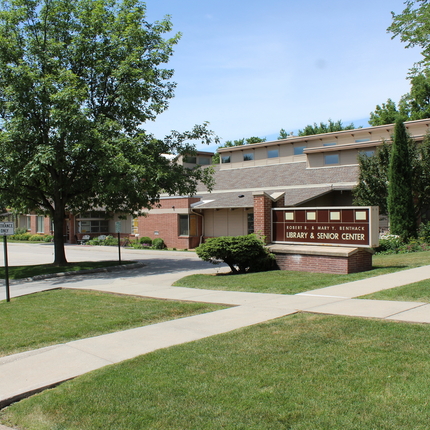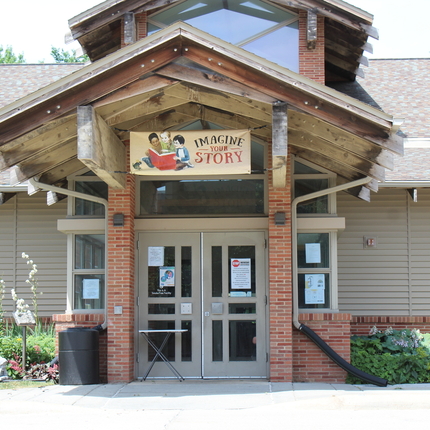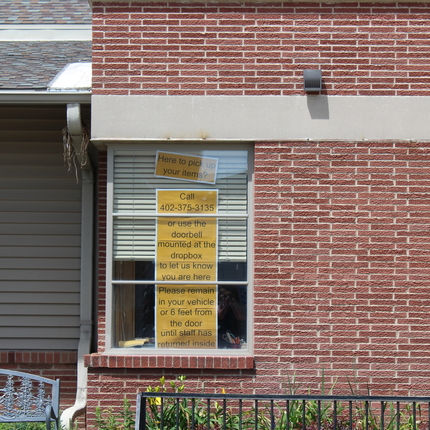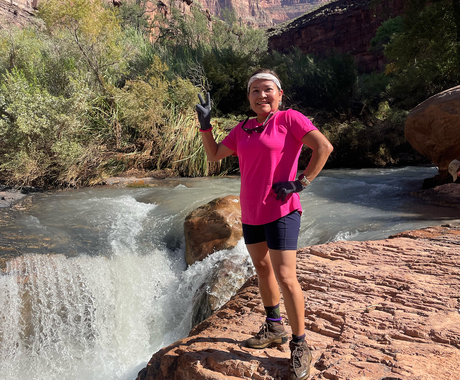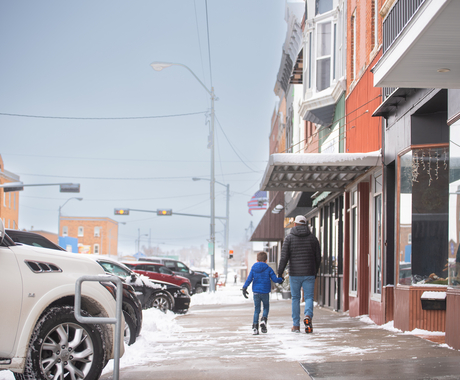Erin Schoenberg contributed to this blog.
A source of comfort, a home away from home, a creative outlet, and a place to expand knowledge and enlighten the minds of young and old alike—libraries are some of our most treasured resources.
Since the coronavirus pandemic has led to the closure of businesses of all kinds, rural Americans have missed out on many of the services generally available to them, especially through their local library.
These challenges and setbacks haven’t stopped library employees from working even harder to provide for their patrons. In Wayne, Nebraska, Wayne Public Library staff have stepped up to show their community how resilient small-town libraries can be.
“We closed on March 18, which feels like an entire lifetime ago,” said Sharon Carr, adult services librarian. “We have been closed to the public since then, but we have never entirely shuttered our doors—limited staff have been working both within the building with restrictions and safety precautions in place and from home since closure.”
A week after closing to the public, the library initiated curbside book pickup. A number of other services are offered as well, including virtual assistance to patrons through online resources like Ebooks and audiobooks, online databases, learning games, language learning apps, and more. Staff are also hosting a virtual summer reading program for both youth and adults, which will run throughout the summer.
Since there have been no daily visitors at the library, staff have focused on in-house projects. Painting the walls, revamping the women’s restroom, cleaning and organizing, and weeding through their book collection, among other tasks, have kept them busy as they brainstorm new and innovative ways to serve the community in our current virtually-run world.
Libraries all over rural America are facing similar challenges. Erin Schoenberg, project associate with the Center for Rural Affairs, has been in contact with several libraries across the state of Nebraska, including Ainsworth Public Library, in Ainsworth; Rock County Public Library, in Bassett; and Lied Scottsbluff Public Library, in Scottsbluff; among others. Though obstacles have been thrown at them, libraries continue to be a refuge for people to rely on.
“No matter how large or small the library, I'm impressed to see the efforts taken to make everyone feel welcome,” said Erin. “The books don't go away just because we can't always get to them in person. Librarians, library directors, and other library staff work hard to bring the knowledge to the people. Knowledge very much is power, and libraries help even the playing field so all can access the info, and connect people in creative ways.”
Connecting with their patrons stays one of the top priorities at Wayne Public Library. Along with Sharon, director Heather Headley, and youth services librarian, Kim Warner, are also going the extra mile to meet patrons’ needs.
“I feel as if most of our patrons, while they have missed coming into the library, have been very understanding and appreciative of all we have done to help them find their next good book and keeping them supplied with movies, puzzles, and board games to help pass the time during this unprecedented situation,” Kim said.
Unfortunately, in-person library services cannot be utilized during this time due to health department directives and social distancing concerns, though staff are doing what they can to find other avenues of access.
“There has been frustration from some of the community for the loss of access to computers,” said Heather. “We have at least resumed printing and faxing on behalf of patrons which will hopefully help while we are making plans. I know patrons miss being able to come in and browse—especially those who do not feel comfortable with technology.”
Despite minor frustrations, communities all over rural America have shown immense support, undoubtedly in part due to the decades of benefits their libraries have offered patrons.
“At the Center for Rural Affairs, we have been welcomed at rural public libraries for years, as we've been fortunate enough to access their meeting rooms for various workshops and trainings,” said Erin. “Libraries are solid, neutral spaces where all people can feel welcome. They're a place where age, income, religion, and other socioeconomic factors don't present barriers that might be found elsewhere.”
That sense of belonging and welcome provided by libraries, combined with the staff’s adaptability and willingness to work to meet the needs of their community are what make these institutions so revered.
“The library staff has a mission, we are here to serve our community; to help them discover and explore new information for education and leisure,” Kim said.
No matter the circumstance, these institutions make sure community members have the information they need.
“It’s great we are able to offer so much to patrons who wouldn’t be able to access the services we have otherwise,” Sharon said. “I’m sure it’s that way at other small libraries as well. We see the community in all different shapes and forms, and are able to assess that and adapt to provide to so many different types of needs.”
Though libraries are doing what they can to provide that security and comfort their patrons have come to depend on, the effects of the global coronavirus pandemic will be lasting. Wayne Public Library has no current reopening date set, and will work with their library board and local health department when making any future plans.
“This has allowed for a new perspective on library services and how we can be meeting the needs of our communities,” said Heather. “I hope our library will be able to continue to do more outreach at the end of this by working with our area retirement and nursing homes, schools, and community center. I do not believe that libraries will cease to be a community gathering place, or that purchasing physical copies of books will stop.”
Rural libraries around Nebraska, and all over the U.S., have faced adversity before, but they face it head on, ready for whatever is thrown at them.
“Libraries are part of the core of rural communities,” said Erin. “They're always evolving to provide the best services to everyone in town, and those who make the trek from more remote farms and ranches. Libraries have embraced technology and, in so doing, have helped students and seniors access the most current information, tools, and services. I'm encouraged to see rural public libraries get creative as they expand their virtual outreach, explore new services and technology, all the while not letting go of their traditional paper bound books.”
Feature photos: Rural library personnel across the country, including library staff in Wayne, Nebraska, are making sure community members have the information they need during this pandemic. Many are providing curbside services, activity kits for children, and even printed out pages for those who need computer access. | Photos by Rhea Landholm

